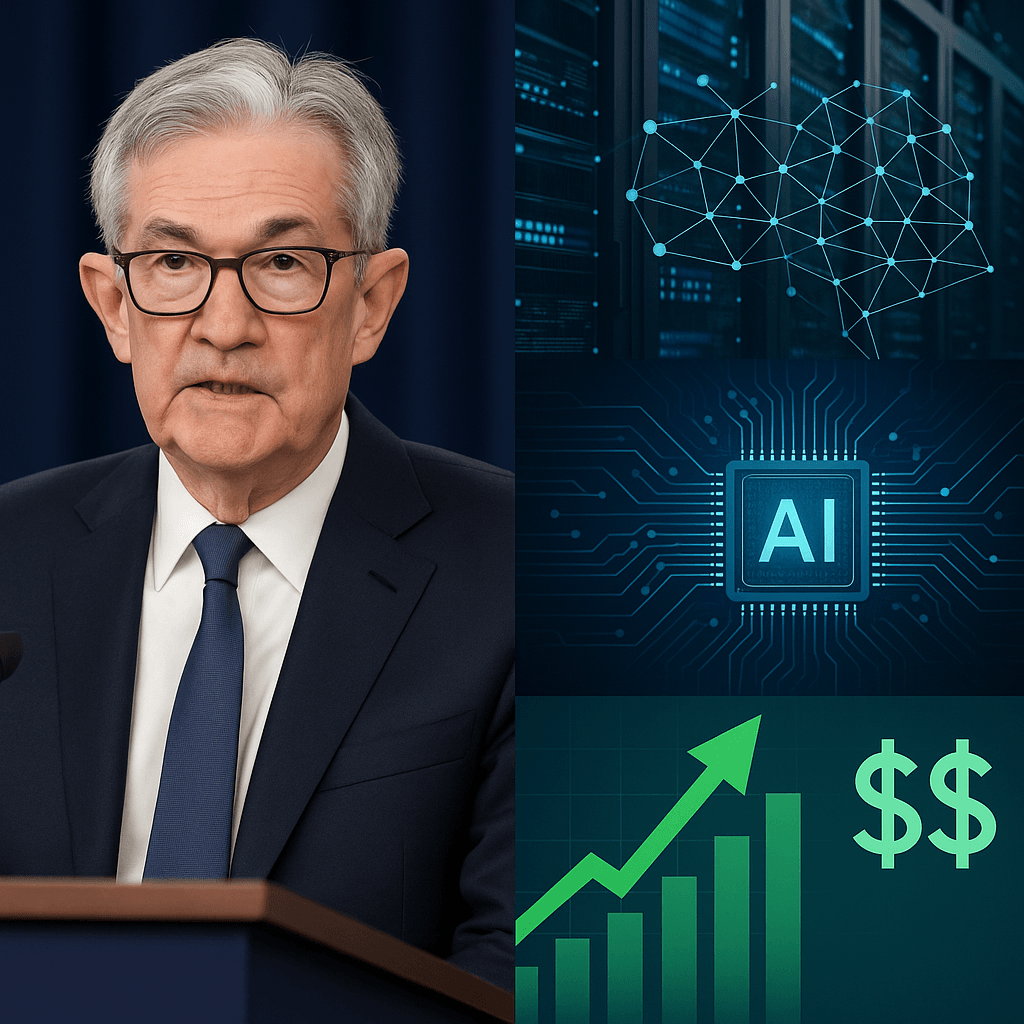Federal Reserve Chair Jerome Powell just drew a crucial line between today's AI boom and the dotcom crash that destroyed trillions in wealth. Speaking after the Fed's latest policy meeting, Powell argued that unlike the late 1990s bubble, today's AI giants actually have profits to back their sky-high valuations - a distinction that could reshape how investors view the current market surge.
The Federal Reserve just gave artificial intelligence its strongest endorsement yet. Fed Chair Jerome Powell delivered a pointed defense of the AI boom during Wednesday's post-meeting press conference, drawing sharp distinctions between today's market dynamics and the dotcom crash that wiped out $5 trillion in investor wealth.
"This is different in the sense that these companies, the companies that are so highly valued, actually have earnings and stuff like that," Powell told reporters, using unusually casual language for a Fed chair. The statement carries enormous weight given Powell's role overseeing monetary policy during what many consider the most significant technological shift since the internet.
The timing isn't coincidental. Nvidia just became the world's most valuable company, crossing $5 trillion in market capitalization on the back of insatiable demand for its AI chips. The rally has been nothing short of extraordinary - the company's graphics processing units have become the backbone of every major AI system from ChatGPT to Claude.
Powell's comments reflect a growing recognition within the Federal Reserve that AI investments represent genuine economic activity rather than speculative fervor. According to Fed economic projections, AI-driven infrastructure spending on data centers and semiconductor manufacturing is contributing measurably to GDP growth - something the dotcom era's paper profits never achieved.
The comparison to the late 1990s bubble is particularly striking given how that period ended. Companies like Pets.com and Webvan burned through billions while generating minimal revenue, their business models built on the assumption that growth alone would eventually translate to profits. When that assumption proved false, the NASDAQ lost 78% of its value between 2000 and 2002.
But Powell's analysis reveals the complexity of today's AI landscape. While Nvidia posts record quarterly earnings, the startup ecosystem tells a different story. OpenAI has reportedly despite generating only $13 billion in annual revenue. Meanwhile, just announced a while operating at a $7 billion revenue run rate.












